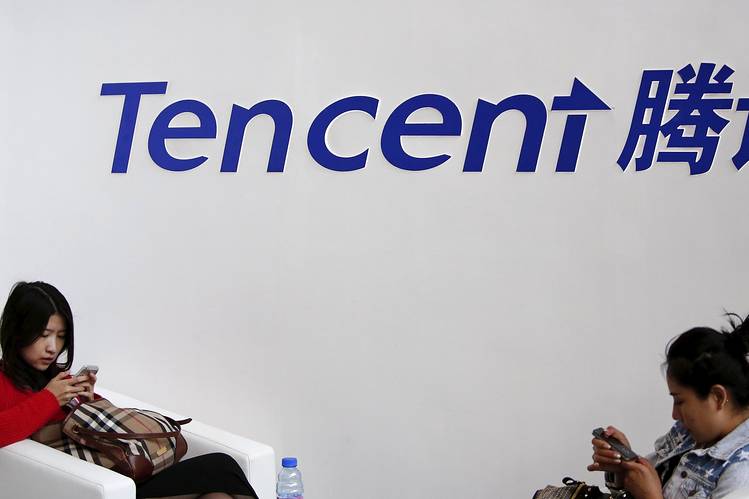In an update on its employment page, League of Legends developer Riot Games announced that it has sold its remaining equity to Tencent, which gives the popular online Chinese game company full ownership.
With the completed purchase, new incentives are opening up for Riot employees. “As a result of our continued growth and changing circumstances, we’re shifting to a new structure to recognize and reward Rioters’ contributions,” reads the post. “and that first involves a big change to our existing equity program. The company confirmed a “cash-based incentive program” for its workers, which leans on its overall success.
Tencent has been a majority stake holder in the company for several years, making its initial investment in 2011. It also invested money for stakes in game companies like Activision Blizzard and Epic Games, which have obviously paid off with a number of successful properties between them.
While some may see this as a surprise, others feel that it was expected of Tencent, in an effort to increase the exposure of games like League of Legends. Joost van Dreunen from SuperData Research, speaking with [a]listdaily, noted, “It’s not unexpected. Tencent operates in a rather transparent way: whenever it sees a particular game or genre rise in popularity on its networks, Tencent either builds its own version or buys itself a piece of the action. Moving to own Riot Games outright is merely an epilogue to Tencent’s earlier investment, and consistent with the company’s overall investment strategy.”
Joost discusses how the acquisition of Riot Games will help with Tencent’s overall growth. Ownership of Riot gives Tencent access to an enormous global audience. Our numbers indicate that League of Legends has around 100 million monthly active users, well beyond the 67 million they reported publicly over a year ago. I have no doubt that Riot s growth played a crucial part in completing the transaction. Beyond revenues, it allows Tencent to leverage Riot s audience for other games and services, thereby further expanding its global entertainment empire.
That said, changes to day-to-day business aren’t likely to be that jarring. I don t expect to see any changes. Tencent understands that it makes little sense to change a winning formula. Likely, Tencent will initiate an even more aggressive push behind LoL s eSports effort and a re-commitment to expanding the user experience,” Joost added.
Tencent’s buyout of Riot Games is just the latest acquisition to take place in the year, “Whereas Western publishers are trying to breach the Asian games markets by localizing existing games, Eastern publishers tend to acquire or invest in existing game companies. It s not immediately obvious whether the games market is changing in terms of available content, but certainly the list of top firms is getting smaller. Combined with Activision s recent acquisition of King and a slew of smaller mergers, the games industry is entering a phase of consolidation that typically follows a period of disruption.
Overall, this could mean a larger interest in consolidation between the U.S. and China, since games are incredibly popular in both markets. To operate on a global scale requires vast resources, and a disciplined approach to game development and publishing. This makes the group of companies that is equipped to do so is increasingly smaller, and raises the barriers to entry.”
Newzoo’s Peter Warman looked at the bigger picture when regarding the news. Speaking with [a]listdaily, he explained that Tencent owned 93 percent of Riot Games already, therefore, “Tencent acquiring the remaining 7 percent of Riot Games is not big news. It comes almost exactly five years after their biggest share increase in 2011. It most probably is the final buy-out of the founders who, as part of the 2011 deal, would keep (part of) their shares for a period of five years securing their leadership. Now that they have succeeded in building world s leading PC game and esports franchise, they deserve a good payday.
“More interesting is to look at it in a larger perspective. Tencent controls a significant share of Glu Mobile and has a considerable stake in worlds second largest company by game revenues: Activision Blizzard, (which) recently bought King, boosting their combined H1 2015 revenues to $3.4 billion, with Tencent at $4.2 billion,” Warman continued. “When Activision Blizzard broke loose from Vivendi back in July 2013 in a deal sized at $8.2 billion, a consortium called ASAC II, purchased $2.34 billion, or almost 25 percent worth of shares. Guess who was a large contributor to this consortium… indeed, Tencent.”
As for how the buyout might shake up the video game industry, Warman states that Tencent indirectly and partially “controls about a third of the revenues generated by the top 10 global companies by game revenues.” This could prompt Tencent’s chief rival, Netease, to take further action. “I would not be surprised if Netease makes an effort to acquire EA before the power of Tencent in the Western market is behind their horizon.”

